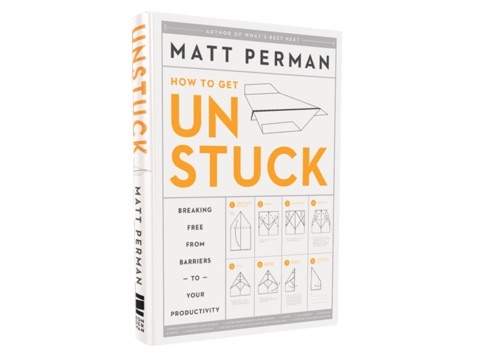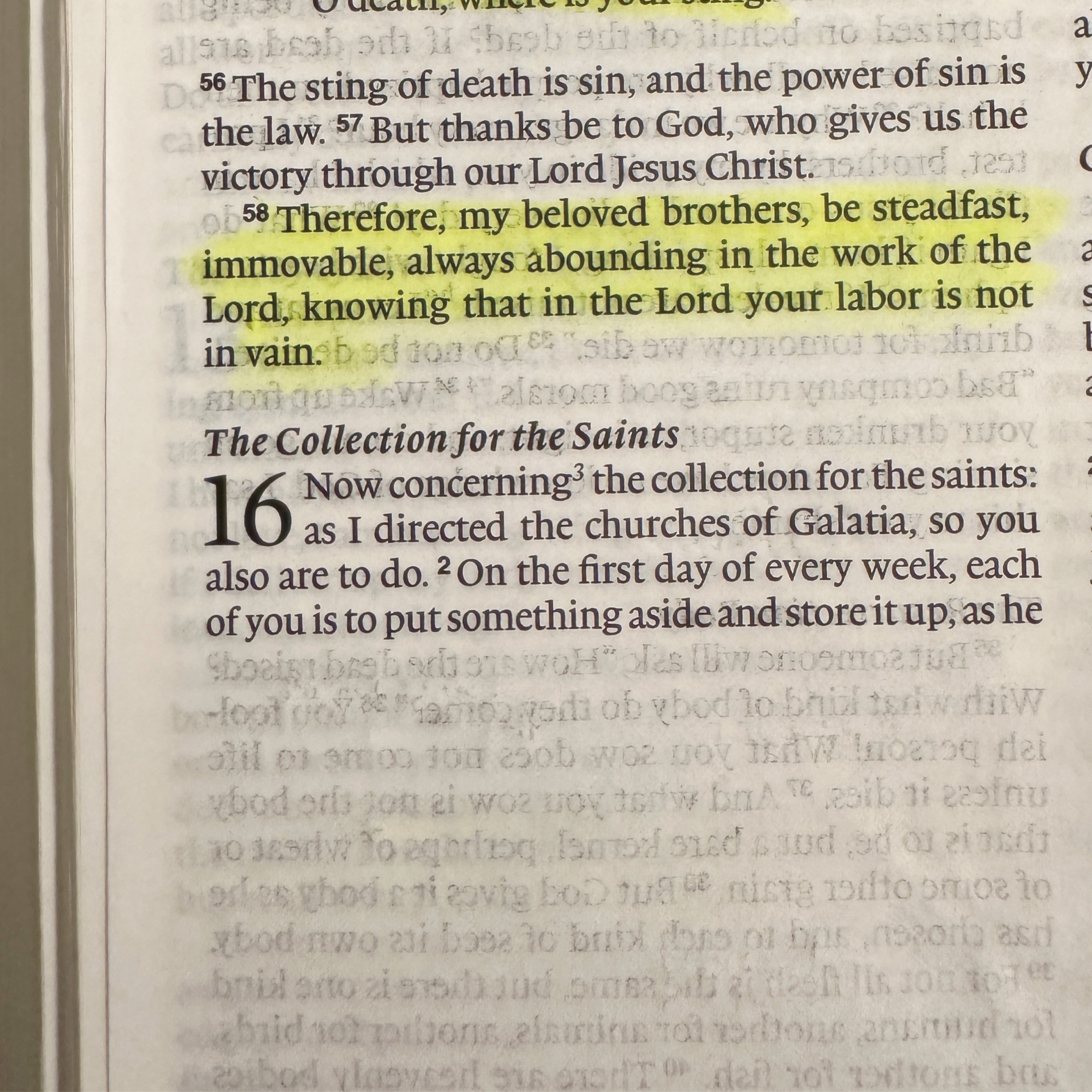
How to Get Unstuck: Breaking Free from Barriers to Your Productivity by Matt Perman who blogs at What’s Best Next is a great read for people who desire to do work that really matters. Perman points out, “The encouraging and surprising truth is that it’s okay to be stuck. Being stuck can be a mark that you are doing important things, because important things are often hard. And when things are hard, we are likely to get stuck.” If you glance over and everyone else around you seems to be sailing right along with no impediments…perhaps they are heading for a big crash that God is protecting you from. Perman references a lot of popular productivity and intentionality writers such as Stephen Covey, Cal Newport, and Greg McKeown…and weaves their thoughts together in a way that is encouraging and motivating.
As an aside, I also downloaded his short ebook How to Setup Your Desk and found it to be extremely helpful as I think about my desks at home and in the office. Lots of great tips!
I highlighted several things while reading and have posted those notes below.
- The encouraging and surprising truth is that it’s okay to be stuck. Being stuck can be a mark that you are doing important things, because important things are often hard. And when things are hard, we are likely to get stuck. Location: 114
- At root, we are stuck when we really want to do, change, or accomplish something, but something prevents or blocks us from doing it. Those things can be internal (sometimes we are the reason we are stuck!), or they can be external. Location: 130
- We will see that urgency versus importance is the fundamental issue in time management. This problem is the root of all the others. Location: 208
- To be unstuck is to be making a difference through obstacles in things that matter to you. It’s to be accomplishing your goals. More specifically, it’s to know how to set the right goals and get them done. It’s to know what God’s purposes are for you and to make them happen with him and in his power. It’s to be able to move and navigate in life and work from where you are to where you want to be—to where God wants you to be. It’s to be able to say, “I want this to be different,” and then be able make it happen. Location: 593
- Fear not, for I am with you; be not dismayed, for I am your God; I will strengthen you, I will help you, I will uphold you with my righteous right hand. ISAIAH 41:10 Location: 649
- Be steadfast, immovable, always abounding in the work of the Lord, knowing that in the Lord your labor is not in vain. 1 CORINTHIANS 15:58 Location: 752
- personal effectiveness is the skill of leading yourself every day to get the right things done in the right way, for the right reason, and in the shortest possible amount of time. Location: 762
- What is important is seldom urgent and what is urgent is seldom important. DWIGHT D. EISENHOWER Location: 897
- If you have influence, you use it first to advance others, not yourself. If you have authority, you use it to protect and serve, not make yourself feel important. Location: 1,226
- Stephen Covey says it best: “Private victory precedes public victory.”2 Personal leadership—being able to lead yourself with genuine integrity—is the private victory. We cannot lead others truly unless we can first lead ourselves authentically. Personal leadership comes before interpersonal and public leadership. Location: 1,294
- Likewise, Stephen Covey notes, “One of my favorite essays is ‘The Common Denominator of Success,’ written by E. M. Gray. He spent his life searching for the one denominator that all successful people share. He found it wasn’t hard work, good luck, or astute human relations, though those were all important. The one factor that seemed to transcend all the rest [was] . . . putting first things first.” Location: 1,398
- As Covey notes, “[Vision] empowers us to put first things first, compasses ahead of clocks, people ahead of schedules and things. Creating and integrating an empowering personal mission statement is one of the most important Quadrant II investments we can make.”21 Location: 1,507
- Skeptics need more than an argument in order to believe; they need to observe intelligent, admirable fellow human beings and see that a big part of what makes them this way is their faith. TIM KELLER Location: 1,630
- Our professional callings are inextricably linked with our impact on the culture, for they are the chief way we interact with the culture and create culture. Location: 1,690
- Being a professional is doing the things you love to do, on the days you don’t feel like doing them. JULIUS ERVING Location: 1,759
- Steven Pressfield focuses on resistance in his work on being a professional in The War of Art. He defines it as “that self-created and self-perpetuated, invisible, impersonal, indefatigable force whose sole aim is to prevent us from doing our work, from becoming our best selves, and from rising to the next level of competence, integrity, and generosity.” Location: 1,804
- Reject professionalism in the bad sense of detachment and distance; embrace it in the good sense of doing great work even when you don’t feel like it, bringing an ethic of generosity and humanity to your work. Location: 1,949
- Preparation is central to effectiveness because it puts routine elements of a task on autopilot so that you can give your focus to the higher-level challenges involved. Location: 2,324
- Since work expands to fill the time available, the key is to start with your time, not your tasks. Location: 2,642
- As Greg McKeown says, “Essentialists spend as much time as possible exploring, listening, debating, questioning, and thinking. But their exploration is not an end in itself. The purpose of the exploration is to discern the vital few from the trivial many.” Location: 2,793
- It is not enough to decide what you will do. To truly make those things happen, you need to decide what you won’t do. Location: 2,875
- The ability to concentrate intensely is a skill that must be trained. CAL NEWPORT Location: 3,032
- Mark Sanborn nails this in You Don’t Need a Title To Be a Leader: “When people know you are interested in their best interest, and in helping them meet their needs, they will trust you. It’s human nature. And that genuine interest in helping others and making a positive difference is the essence of leadership.” Location: 3,783



